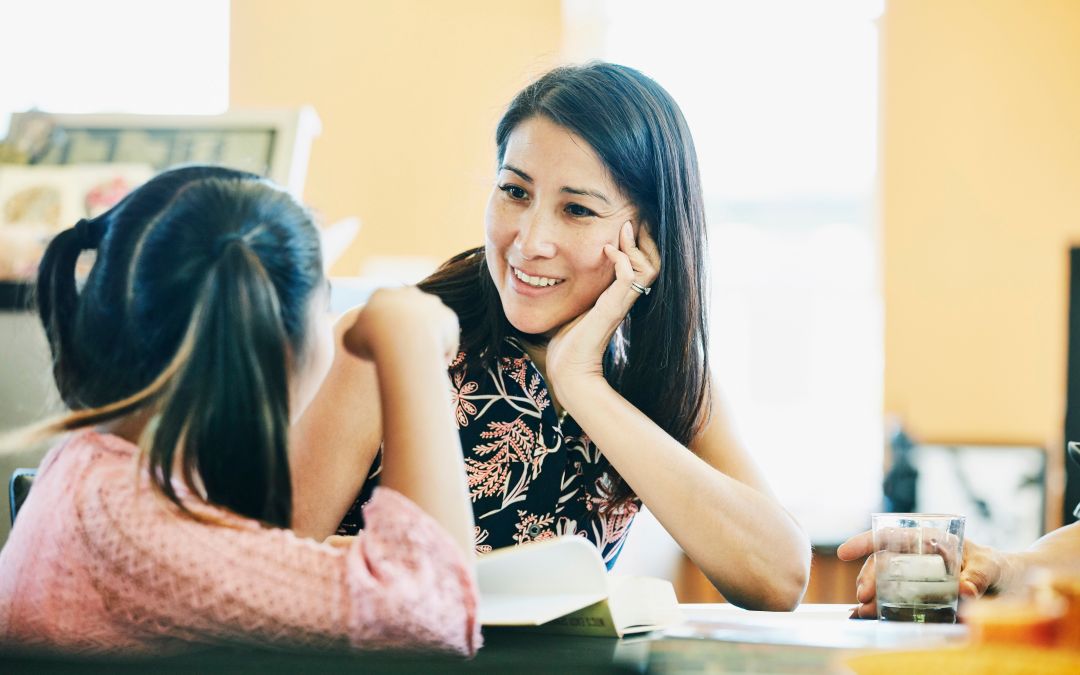How to talk to children about coronavirus
Laura Earnshaw, founder of myHappymind, gives advice on how to approach this subject

6 minute read
These are unprecedented times. We’re surrounded by advice, scary statistics, and sometimes conflicting information. Some of this seems helpful but some of it makes us feel even worse.
It’s no surprise then, that we’re becoming overwhelmed by emotions such as fear and anxiety.
Nor is it a surprise that our children will pick up on our anxieties (not to mention what is said in the playground) and we must try and protect them as much as we can, both physically and mentally.
We’re fully equipped with information on how to look after our physical health as it relates to coronavirus, but what about our mental health and the mental health of our children?
This article, and special toolkit which I’ve prepared for you, is dedicated to just that. We’ll start by looking at how we can talk to our children about the virus and then look at what we can do to keep their mental strength up during any prolonged period of time at home.
How should I talk to my child about the virus?
You should always, of course, think about your own child, their situation and any sensitivities they may have about this subject. However, we do advise that being open and honest about at least some of the basics is important.
There’s no benefit in your children following the death toll or the numbers diagnosed because these aren’t messages that are going to help them in any way. Instead, focus on things they can do to prevent and minimise their exposure to the virus.
Here’s a really gentle script that you can use to explain what the virus is:
What is Coronavirus?
Coronavirus is a type of virus, it is new and so that’s partly why there is so much attention on it.
Viruses are VERY common and you will probably have had several of them already and recovered just fine! For example, a cold is a virus and you’ve probably had several of those in your life.
Coronavirus is in the same family of viruses as the cold and flu.
The doctors will find a cure for it but it might take a little bit of time.
What are the symptoms?
The most common symptoms of coronavirus are:
- A high temperature (fever)
- A cough
- Difficulty breathing BUT it doesn’t stay for long and most people get better (especially kids!)
What can I do to keep my body safe?
- Wash your hands with soap and water often (sing the WHOLE alphabet song while you do it!)
- Cover your mouth with a tissue when you sneeze or cough (then put it straight in the bin).
- Keep a safe distance from those that are outside of your family, especially if they are elderly, or unwell.
Want to do a cool experiment to learn why hand hygiene is so important? Try this with your kids…
1. Grab a plate or bowl and put a little water in it.
2. Add some ground pepper (the pepper represents the virus.)
3. Now, put your finger in the water and pepper, your hand probably now has some pepper on it right?
4. Next, put some soap on your finger, don’t rinse it off…
5. Put your finger which has soap on in it in the water and pepper and watch the virus run!
This is why hand hygiene is so important – when our hands are clean the virus can’t stick to it!
As well as advice on supporting children’s understanding of the virus, I’d like to provide you with some daily activities to ease their worries and create a positive environment. I have also prepared a free kit of resources for you to download here.
Keeping the family focussed on the important things
Here are five different activities that you could do as many times as you like…
1. Practise gratitude
However stressful a day might seem, there are always things to be grateful for. So have a conversation with your child at the end of each day about the 3 best things in their day. It’s simple, it’s advice you may have heard before, and it works.
If you want to jazz up your gratitude work you can always create a gratitude lucky dip jar! This is something that we do in our nurseries and schools and you’ll find the guidelines on how to do it in the free myHappymind kit we’ve prepared for you.
2. Mindful breathing
Whether you and your children are familiar with meditation or not the benefits of stopping and taking time to breath are huge. I’m delighted to be providing you with a free download of one of our happy breathing sessions designed specifically for children.
3. Set daily meaningful goals
One of the easiest ways to help children stay focused and to encourage that dopamine to flow around their brain is to get them achieving some goals. This will be particularly helpful in times of self-isolation and school closures. Think about something that they can achieve within the space of a morning or afternoon that is manageable and fun.
I’m also including a free goal setting sheet to help your children to plan this out and some wonderful reward rosettes!
4. Stay connected
Friendships and relationships don’t need to get put on hold just because you may happen to be off school. Encourage your children to use technology like phones and Facetime to have a conversation with their friends. Maybe they can do a project together where they can share progress each day over video. Technology isn’t all bad and we should use it to its full advantage during these times.
5. Get outside
There’s nothing better than fresh air and while we may not be visiting our parks much, we can still use our own garden or outside space. Get outside at least a couple of times a day and take some deep breaths!
The truth is that what gets us through challenges like these is finding strength in the small moments of positivity that will be happening each and every day.
Remember to be kind to yourself, to your family and to those in your community through these testing times. Being kind is always free and always invaluable.
Get your free myHappymind kit here.
Image: Getty









